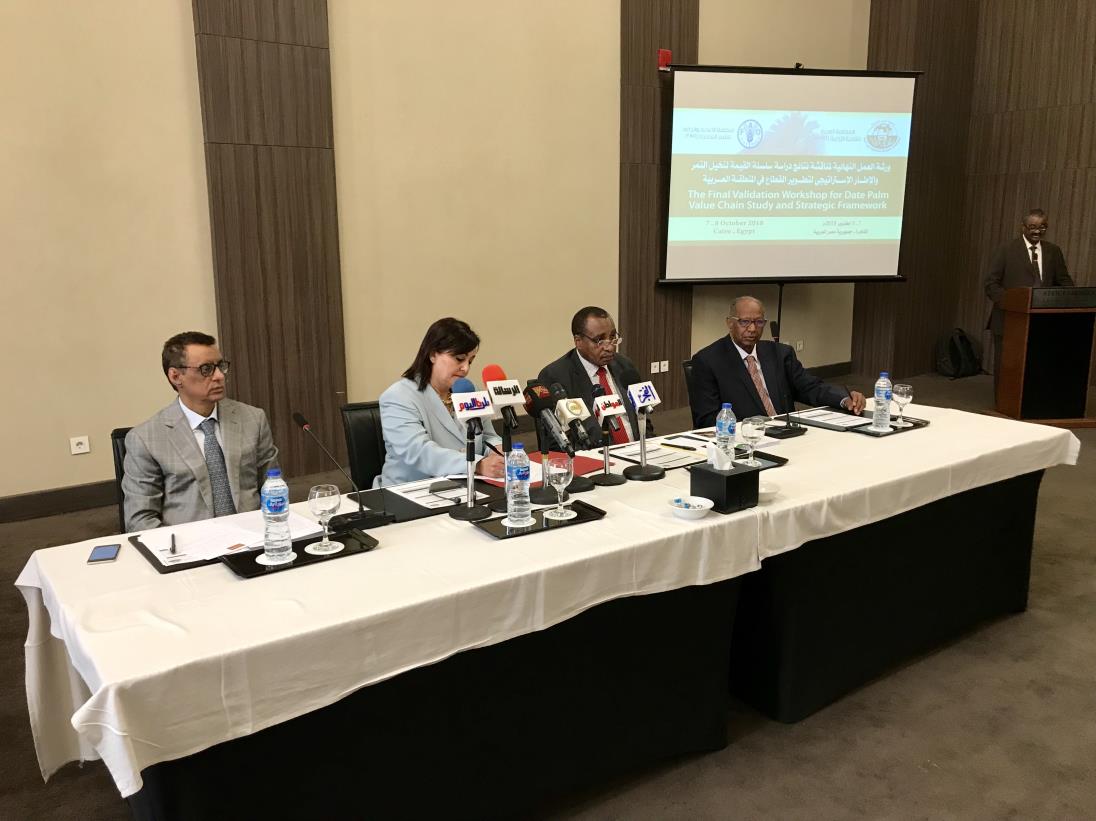FAO and AOAD promote sustainable development of date palm value chain in Near East and North Africa region

7 October 2018, Cairo, Egypt – The Food and Agriculture Organization (FAO) of the United Nations and the Arab Organization for Agricultural Development (AOAD) are jointly working to advance country-driven and regionally integrated actions intended to address key issues and accelerate growth in the date palm value chain in the Near East and North Africa (NENA) region.
As part of these efforts, AOAD and FAO organized a regional workshop in Cairo, which was opened with the participation of Dr. Mona Mehrez, Deputy Minister for Animal Resources and Fisheries and Poultry in Egypt; Abdessalam Ould Ahmed, FAO Assistant-Director General and Regional Representative for NENA; and Ibrahim El-Dukheri, Director General of AOAD.
The event gathered different stakeholders and experts from government institutions, the private sector and the civil society, to present the results of the Date Palm Value Chain Study and the Strategic Framework for the Development of the Date Palm Value Chain in the Arab Region. This is a first step towards the implementation of concerted interventions at country, sub-regional and regional levels for the expansion of this important industry in the region.
“Each one of us plays a critical role in mobilizing resources and implementing innovative actions intended to expand the contribution of the date palm value chain to the social and economic development of our countries, while also caring for the sustainability of natural resources and ecosystems,” said OuldAhmed.
FAO is promoting a holistic, market-driven and inclusive approach to sustainably develop the date palm value chain in the region and at the country level, with a focus on increasing competitiveness, access to higher value markets and expanding growth.
“Over the past five decades, FAO support has significantly contributed to improving the date palm sector through production, post-production, and livelihoods activities in farmer communities, and enhanced capabilities of the national authorities,” added OuldAhmed.
Date palm is a major crop as well as an important source of income and food security for rural communities. In addition, it makes a significant contribution to national economies in the NENA countries.
Despite the substantial progress made, the date palm industry still faces serious challenges in the region, including water scarcity, soil salinity, poor adoption of new technologies and low product quality, which greatly affect productivity, marketing capacity and profitability.
The expansion of the date palm industry is dependent on many aspects, including: control of pest and diseases, increasing adoption of new technologies, enhancing the quality of date end products, reducing field and post-harvest losses, formalizing and streamlining market systems and developing date value added products and by-products.
These issues need to be addressed through a wide value chain and food system approach that considers elements such as food security, nutrition and sustainability of natural resources, while supporting income and employment generation.
